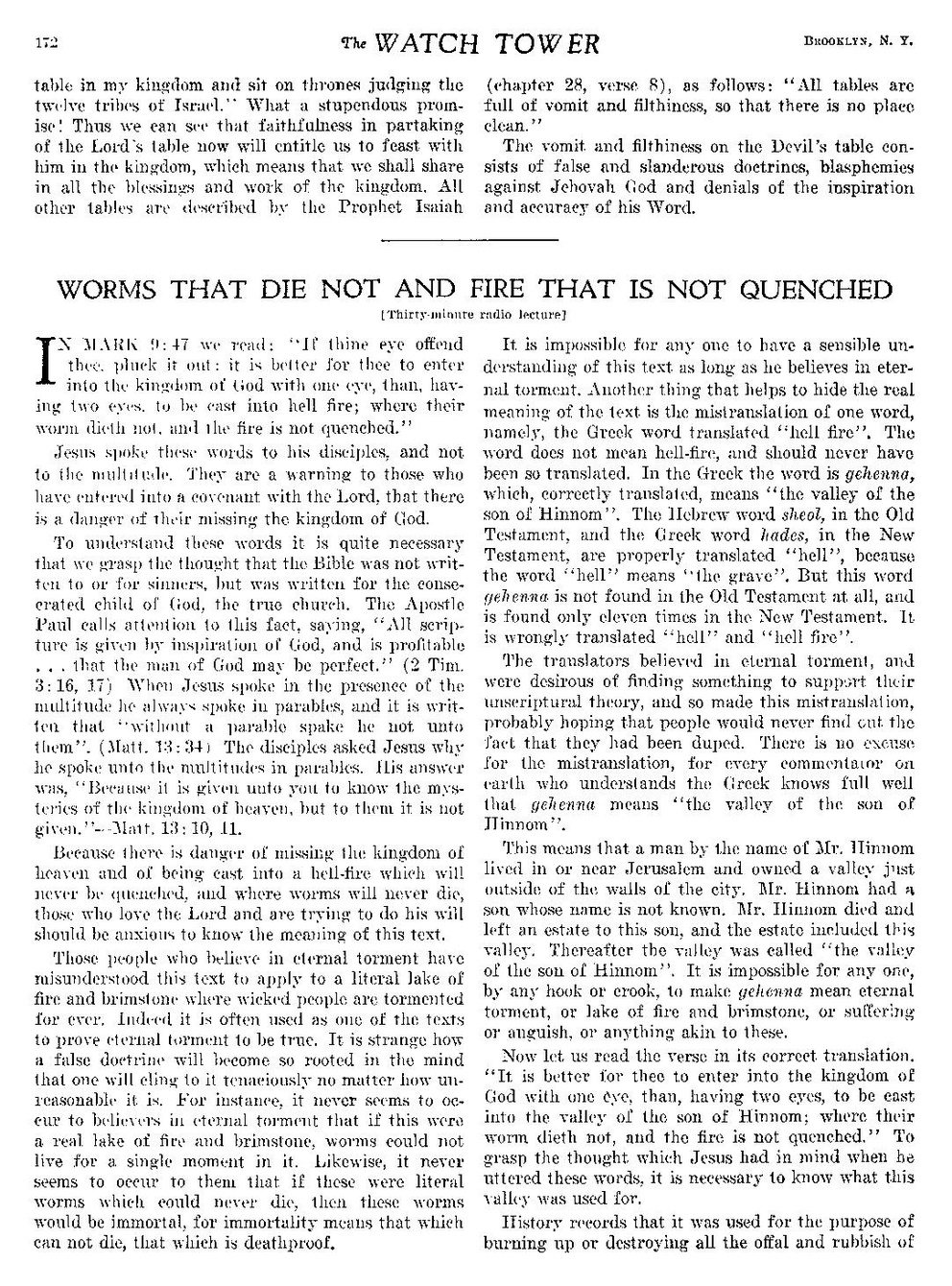table in my kingdom and sit on thrones judging the twelve tribes of Israel." What a stupendous promise. Thus we can see that faithfulness in partaking of the Lord's table now will entitle us to feast with him in the kingdom, which means that we shall share in all the blessings and work of the kingdom. All other tables are described by the Prophet Isaiah (chapter 28, verse 8), as follows: "All tables are full of vomit and filthiness, so that there is no place clean" The vomit and filthiness on the Devil's table consists of false and slanderous doctrines, blasphemies against Jehovah God and denials of the inspiration and accuracy of his Word.
radio lecture]
It is impossible for anyone to have a sensible un· derstanding of this text as long as he belieyes in eternal torment. Anot her thing that helps to hide the real meaning of the text is the mistranslation of one word, namely, the Greek word translated "hell fire". The word does not m('an hell-fire, and should never have be('n so translated. In the Greek the word is gehenna, which, correctly translated, means" the valley of the son of Hinnom". The Hebrew word sheol, in the Old Testament, and the Greek word hades, in the New Testament, arc properly translated "hell ", because the word "hell" means "the grave". But this word gehenna is not found in the Old Testament at all, and is found only eleyen times in the New 'l'estament. It is wrongly translated" hell" and" hell fire ". The translators believed in eternal torment, and were desirous of finding something to supp~)rt their unscriptural theory, and so made this mistranslat ion, probably hoping that people would never find cut the fad that they had been duped. There is no cxwse for the mistranslation, for every commentatOr on earth who understands the Greek knows full well that gehenna means "the valley of the son of Einnom' '. This means that a man by the name of :Mr. Hinnom liyed in or near Jerusalem and owned a valle~' j'lst outside of the walls of the city. 1'. Hinnom had 1 son whose name is not known. 1'. Ilinnom died and left an estate to this son, and the estate included tri" yalley. Thereafter the yalley was called "the valley of the son of Hinnom". It is impossible for any on(', by any hook or crook, to make gehenna mean eternal torment, or lake of fire and brimstone, or suffer:ng or anguish, or anything akin to these. Now let us read the verse in its ('orrect translation. "It is better for thee to enter into the kingdom of God with one <'~'e, than, having two eyes, to be cast into the yalley of the son of Hinnom; whE're their worm dietll not, and the fire is not quenched." To grasp the thought which Jesus had in mind when he uttered these words, it is necessary to know what this nl1h'~' was used for. Histor~' records that it was used for the purpose of burning up or destroying all the offal and ruhbish of
